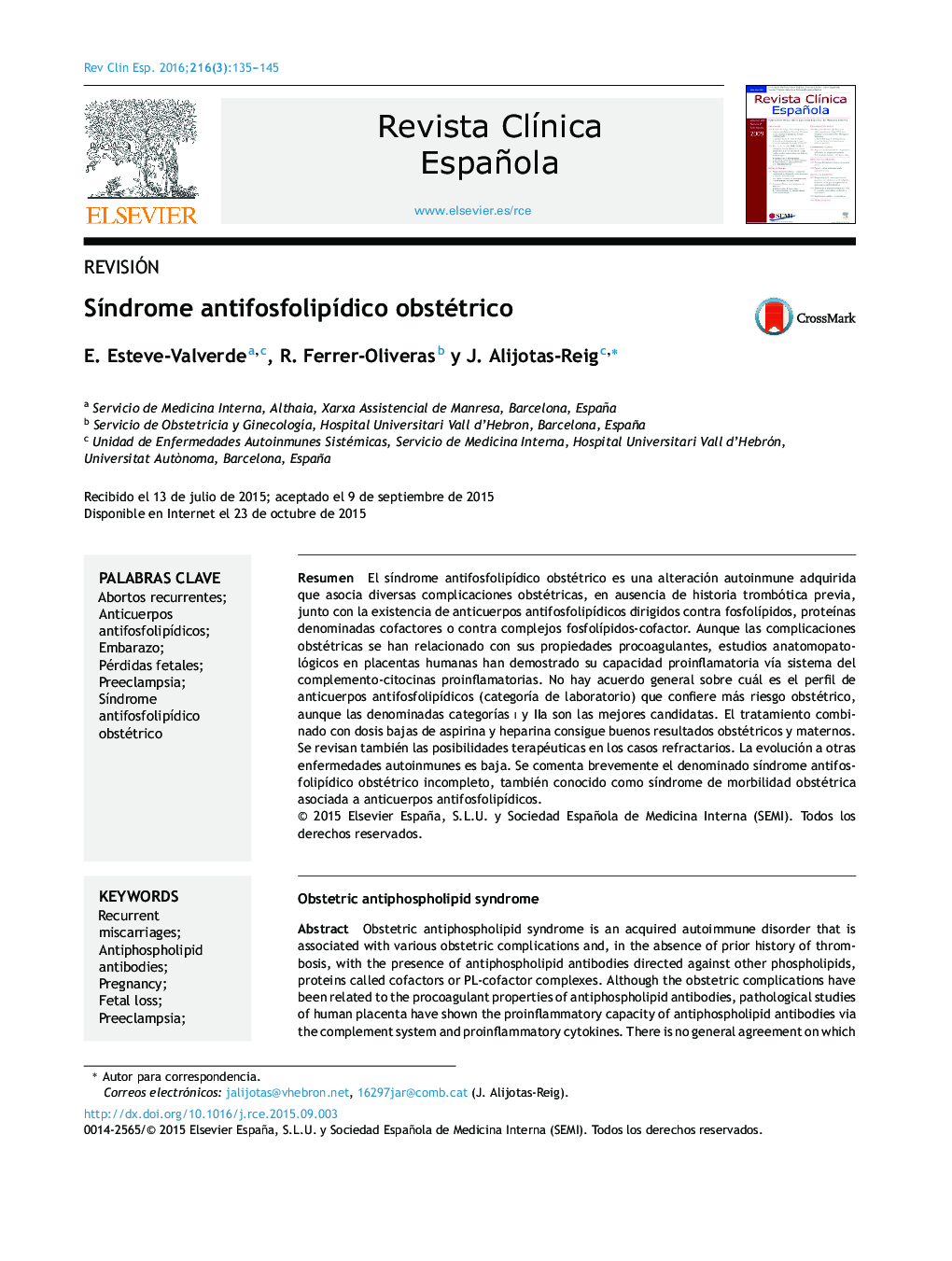| Article ID | Journal | Published Year | Pages | File Type |
|---|---|---|---|---|
| 3828993 | Revista Clínica Española | 2016 | 11 Pages |
Abstract
Obstetric antiphospholipid syndrome is an acquired autoimmune disorder that is associated with various obstetric complications and, in the absence of prior history of thrombosis, with the presence of antiphospholipid antibodies directed against other phospholipids, proteins called cofactors or PL-cofactor complexes. Although the obstetric complications have been related to the procoagulant properties of antiphospholipid antibodies, pathological studies of human placenta have shown the proinflammatory capacity of antiphospholipid antibodies via the complement system and proinflammatory cytokines. There is no general agreement on which antiphospholipid antibodies profile (laboratory) confers the greatest obstetric risk, but the best candidates are categories I and IIa. Combined treatment with low doses of aspirin and heparin achieves good obstetric and maternal outcomes. In this study, we also review the therapeutic possibilities in refractory cases, although the likelihood of progressing to other autoimmune diseases is low. We briefly comment on incomplete obstetric antiphospholipid syndrome, also known as antiphospholipid antibody-mediated pregnancy morbidity syndrome.
Keywords
Related Topics
Health Sciences
Medicine and Dentistry
Medicine and Dentistry (General)
Authors
E. Esteve-Valverde, R. Ferrer-Oliveras, J. Alijotas-Reig,
